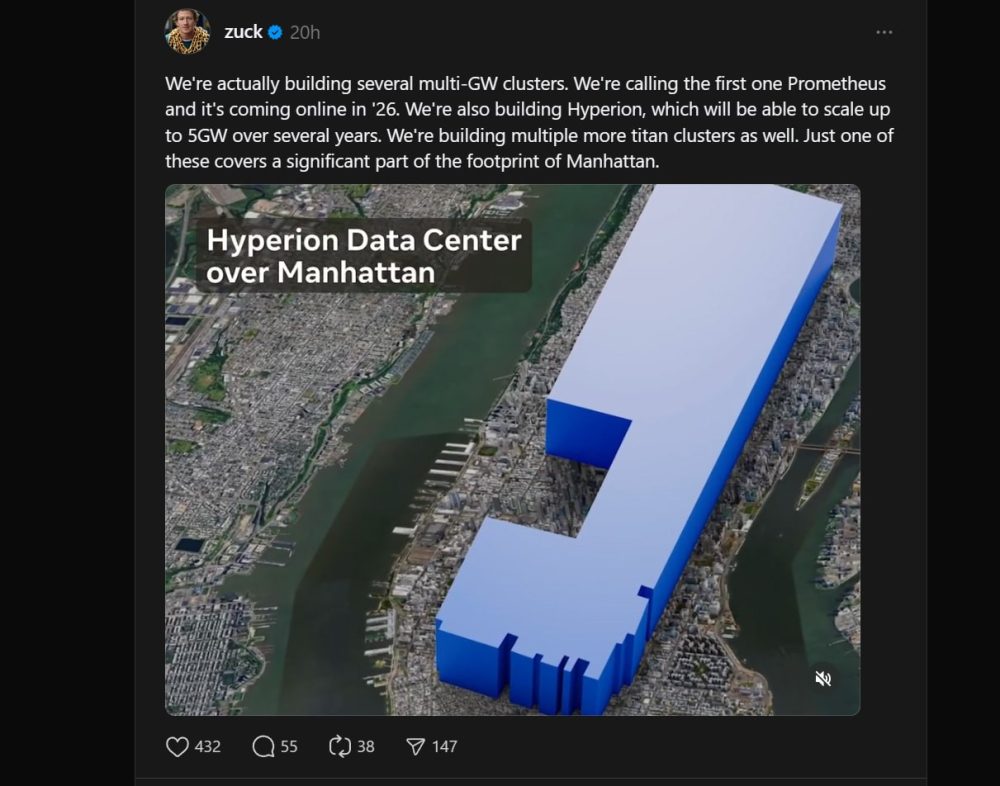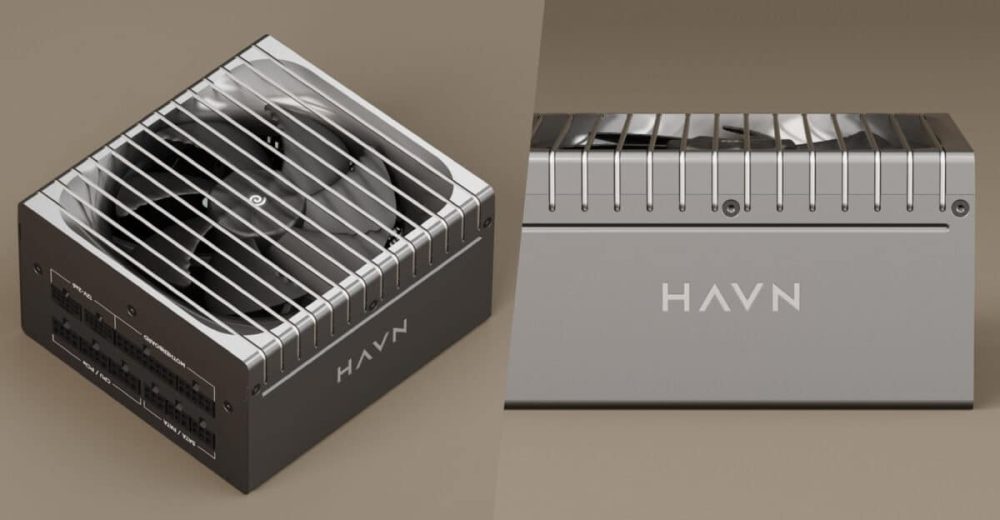When Mark Zuckerberg announced Meta’s latest pivot, from feeding us ads in 4K to feeding the world a diet of superintelligence, the internet barely blinked.
Somewhere in the neural depths of Zuckerberg’s empire, a new kind of brain is forming, one that stretches not metaphorically, but physically, across Manhattan. From Washington Square to Harlem, Meta’s rumored new superintelligence facility would sprawl across 6.5 miles (10.5 km) of the most expensive real estate on Earth, consuming nearly 80% of Manhattan’s width. It’s not just a data center. It’s a digital leviathan, and it might just be the cornerstone of Zuckerberg’s quest for AI-fueled dominance.
“Hundreds of Billions Into Compute”: A Casual Promise or a Warning?
Zuckerberg didn’t mince words. “We’re going to invest hundreds of billions of dollars into compute to build superintelligence,” he wrote, casually, like one might announce buying a new espresso machine. “We have the capital from our business to do this.”
Meta, already the owner of your attention, your photos, your arguments, your grandma’s conspiracy theories, and your kids’ dancing videos, wants to own the future of thinking itself.
And Zuck is stacking the deck. “Meta Superintelligence Labs will have industry-leading levels of compute and by far the greatest compute per researcher,” he boasted. “I’m focused on building the most elite and talent-dense team in the industry.”
Translation: Every GPU on Earth, every genius that can be poached, every line of code that whispers “sentience”, Meta wants it. All of it.
Future Intelligence
Meta’s track record with visionary tech investments is… mixed. Since 2020, Reality Labs has spent over $60 billion attempting to turn the metaverse into something people actually want. The result? Cool VR headsets, slick smart glasses, and crickets. No killer app, nor real profits.
Indeed, Meta’s open-source AI models, such as LLaMA, are respected, and its ad-targeting AI helps sustain revenue. But when you ask average users what Meta AI does for them, the answer is usually: “Wait, is that the chatbot that said something weird in Messenger?”
In contrast, rivals like OpenAI, Google DeepMind, and Anthropic are already producing mind-blowing AI experiences. Meta may have a bigger wallet, but right now it feels like it’s bringing a pile of cash to a chess match.
Should We Worry?
Unlike its rivals, Meta isn’t just building intelligence. It’s already inside your brain, or at least your attention span. Instagram. WhatsApp. Facebook. Messenger. Threads. Meta controls platforms that billions of humans interact with daily. And if it injects superintelligence into those systems, it won’t need to sell a product. We’ll already be the product.
Think about an AI that doesn’t just write your captions, but rewires your relationships. An AI that doesn’t just recommend content, it creates it for you, from you, using your own data. What happens when your mother’s nostalgic birthday post is AI-generated because Zuck’s brain thinks it’ll get more likes? What happens when the AI is better at being you than you are?
A New Kind of Empire
This isn’t just about compute, talent, or even innovation. It’s about control. If Meta builds the first truly superintelligent system and wires it directly into the world’s social fabric, it won’t matter that OpenAI has the smartest model or that Google has the deepest research. Meta will have us.
And don’t think for a second that this isn’t by design. Zuck’s empire isn’t trying to win the AI race by accident. He’s betting the future of humanity’s digital infrastructure, possibly civilization itself, on becoming the landlord of synthetic thought.
The Future According to Zuckerberg
If this sounds like science fiction, remember: the guy who made “poking” a social phenomenon now wants to reshape reality itself. In his world, Meta’s next act is no longer about connection; it’s about the conquest of our minds.


